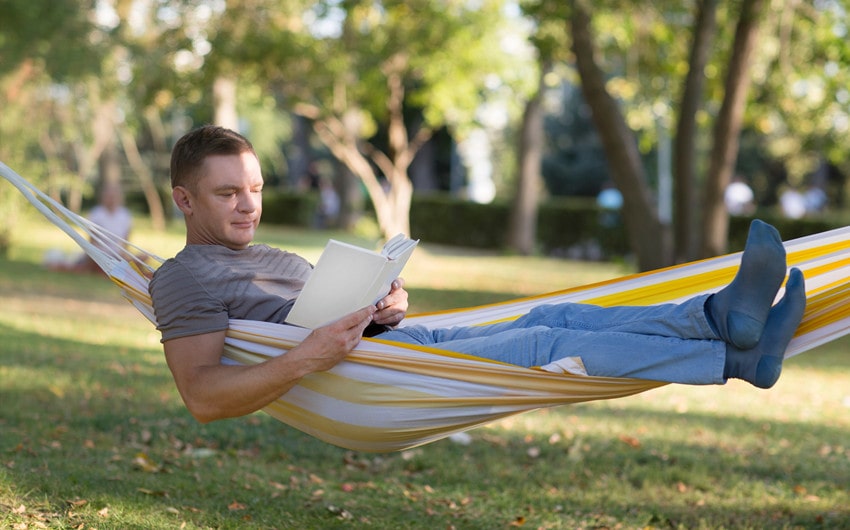Slowing Down Without Falling Behind
Slowing down sounds beautiful in theory. We all say we want more calm, more space, more time to breathe. But in a world that rewards constant motion, choosing to move slower can feel almost rebellious — or worse, risky.
What if I fall behind? What if I miss an opportunity? What if slowing down means getting left behind while everyone else keeps going?
Those fears are real. But what if slowing down isn’t about falling behind at all? What if it’s the very thing that helps you catch up — not with the world, but with yourself?
Slowing down doesn’t mean doing nothing. It means doing what matters, with presence and peace instead of panic.
The Speed Trap
We live in a culture that worships speed. Productivity is treated like purpose. Rest feels indulgent. Silence feels suspicious.
We rush through the day with a sense of invisible urgency, as if there’s a finish line we’re all trying to reach before time runs out. But when we finally pause — even for a moment — we often can’t explain what exactly we were racing toward.
Busyness has become a form of identity. When we say “I’m busy,” what we often mean is “I matter.” But the truth is, being busy doesn’t always mean being fulfilled.
Slowing down isn’t the same as giving up. It’s just refusing to mistake motion for meaning.
Why We Fear Slowing Down
We’re conditioned to equate pace with value. The faster we move, the more we must be achieving. The more we achieve, the more secure we feel.
But beneath that drive often lives fear — the fear of being forgotten, of losing relevance, of not doing enough to earn our place.
Yet no matter how fast we go, peace keeps moving just out of reach. Because peace doesn’t exist at the finish line. It lives in the pauses we keep skipping.
When you stop rushing, you start realizing how little of your life actually needs to be hurried.
Redefining What It Means to Fall Behind
Falling behind is a concept built on comparison. We imagine there’s a shared timeline — that life has a universal schedule and we’re supposed to keep pace with it.
But there isn’t. Everyone’s life unfolds differently. Everyone’s definition of success changes over time.
When you slow down, you begin to notice that what you thought was falling behind might actually be alignment.
You’re not slower; you’re more selective. You’re not avoiding life; you’re choosing the parts of it that feel real.
The Gift of Depth
There’s a richness that only slowness can bring. When you move too fast, life becomes a blur — a collection of things you saw but never experienced.
When you slow down, you start seeing detail again. You notice the texture of your days — the small joys, the subtle shifts in light, the laughter that lingers.
You begin to experience life deeply instead of efficiently.
Depth doesn’t happen at high speed. It happens when you give something — or someone — your full attention.
Slowing down is how you stop skimming your life and start reading it.
How to Slow Down Without Stopping
You don’t have to leave everything behind to live at a gentler pace. Slowness isn’t about withdrawal; it’s about rhythm. It’s finding a way to move through your life that feels sustainable.
Start by asking: What’s actually urgent — and what’s just noise?
Here are a few small ways to begin:
1. Be where your hands are.
When you’re cooking, just cook. When you’re working, just work. When you’re resting, just rest. Multitasking splits your presence and scatters your peace.
2. Practice single-tasking.
One thing at a time. It feels uncomfortable at first, but it’s how you start regaining focus and calm.
3. Create micro-pauses.
Between tasks, take fifteen seconds to breathe. Notice your surroundings. Let your body reset before you move to the next thing.
4. Protect your margins.
Leave small spaces in your schedule for nothing. That “nothing” often becomes the most restorative part of your day.
5. Say no with softness.
You don’t have to explain or apologize for protecting your peace. “No” can be a full sentence and a kind one.
The Myth of Missing Out
We live in a culture of constant comparison. We scroll through other people’s lives and mistake their highlight reels for our reality.
But here’s the truth: you can’t be everywhere, do everything, or please everyone — and you’re not supposed to.
FOMO, the fear of missing out, is really the fear of choosing — of saying yes to one thing and letting go of another. But choice is what gives your life direction.
When you slow down, you stop chasing every possibility and start cherishing the one you’re actually living.
You realize you’re not missing out. You’re opting in — to peace, to presence, to meaning.
Rest as Strategy
Slowing down isn’t lazy. It’s strategic. It’s how you sustain creativity, clarity, and emotional resilience.
Every system — including you — needs recovery time. Muscles rebuild during rest. The mind makes connections during silence. Growth happens in the pause, not the push.
When you stop, you’re not losing momentum; you’re regaining capacity.
Stillness isn’t the opposite of progress. It’s what makes progress possible.
The Courage to Move Differently
Slowing down takes courage because it means trusting your own timing in a world obsessed with speed.
It means listening to your inner rhythm instead of the world’s expectations. It means being okay with quiet seasons — the times when growth is happening beneath the surface, unseen but essential.
There will always be people who move faster, chase more, achieve louder. But you don’t have to compete with their pace. You’re not running their race.
The only race that matters is the one between who you are and who you’re becoming.
When You Choose Presence Over Pace
The more you slow down, the more you realize how little peace existed in the rush. The urgency fades, the noise softens, and what remains is clarity — the ability to see what’s truly worth your time.
You start noticing that the most meaningful parts of life aren’t things you can schedule — connection, creativity, joy, wonder.
They appear naturally when you create space for them.
Presence is the reward of slowness. And presence is the one thing you can’t experience while rushing.
The Balance Between Ambition and Ease
Slowing down doesn’t mean losing ambition. It means refining it. It’s not about doing less; it’s about doing with more purpose.
You can still dream, still build, still achieve — but from a place of alignment instead of anxiety.
When you slow down, your goals become clearer. You start pursuing them not because you’re afraid of missing out, but because they genuinely matter to you.
Ease isn’t the absence of effort. It’s effort that feels natural — the kind that flows instead of forces.
The Beauty of Your Own Pace
You don’t have to match the rhythm of anyone else’s life. You have your own.
When you learn to move at your own pace — one that honors your energy, your boundaries, your season — you start to feel free again.
There’s a peace that comes from knowing you can slow down and still arrive exactly where you’re meant to.
Because slowing down isn’t falling behind. It’s catching up with the parts of your life that actually matter.
Closing Thoughts
There will always be noise, urgency, and the pressure to do more. But the quiet truth beneath it all is this: you don’t have to live at the world’s speed to live a good life.
You can slow down and still succeed. You can rest and still grow. You can move gently and still make progress.
The world might move fast, but that doesn’t mean you have to.
You’re allowed to take your time. You’re allowed to live at a pace that feels human.
Because life isn’t measured by how fast you go — it’s measured by how deeply you live.




